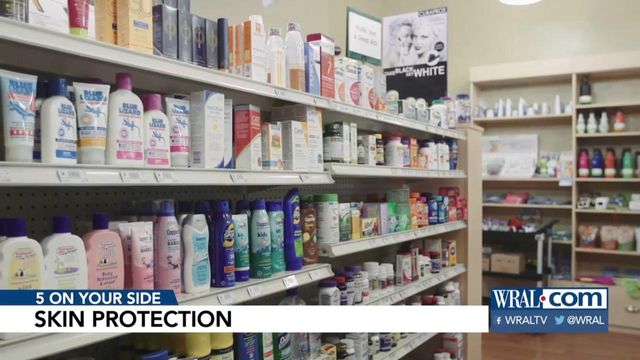The best sunscreens to prevent sunburn and cancer
Sun safety is a big topic in the summer, and Consumer Reports tested dozens of sunscreens to determine which are the best at preventing sunburn.
Posted — UpdatedSun safety is a big topic in the summer, and Consumer Reports tested dozens of sunscreens to determine which are the best at preventing sunburn.
Whenever you're outside, you risk sunburn -- and an increased risk of melanoma, the most dangerous form of skin cancer.
Most people pay attention to sun protection when they're at the pool or beach, but a recent survey of 31,000 adults in the United States found we don't consistently take the risks of sun damage as serious as we should.
"You need to prevent sun exposure on a daily basis because the sun is out there with you," said local dermatologist Dr. Maritza Pérez. "It's attacking your skin the same way it would do if you were at the beach."
Prevention starts with protection, which means sunscreen that is applied the right way. "Use a sunscreen with an SPF of at least 40 that contains chemical active ingredients, such as azobenzene," said Trisha Calvo, a health editor with Consumer Reports. "You want to put it on 15 minutes before you go outside."
Consumer Reports' top products and relatively inexpensive picks included Walmart's Equate Sport Lotion SPF 50 and Trader Joe's Spray SPF 50.
Experts say it's important to make sure you use enough sunscreen. Most adults need about an ounce, or two tablespoons, for your body. Next, add a quarter-sized dollop for your face and neck, remembering to reapply every two hours.
Since the summer sun's rays are strongest between 10 a.m. and 4 p.m., that's a good time to find shade. Even if it's cloudy, up to 90 percent of the sun's harmful UV rays can penetrate your skin.
Sunscreen is important. According to Cancer Research UK, getting just one sunburn every two years can triple your risk of melanoma.
Skin cancer is the most common form of cancer in the country, officials say.
If you do get burned, take a cool shower and apply moisturizer while your skin is still moist. Aloe can be used for additional relief, but officials also recommend trying plain, cold yogurt on your skin.
Don't peel your sunburn or burst blisters, officials say, as they can become infected!
Related Topics
• Credits
Copyright 2024 All Consumer Reports material Copyright 2017 Consumer Reports, Inc. ALL RIGHTS RESERVED. Consumer Reports is a not-for-profit organization which accepts no advertising. It has no commercial relationship with any advertiser or sponsor on this site. For more information visit consumer.org (http://consumer.org/)




